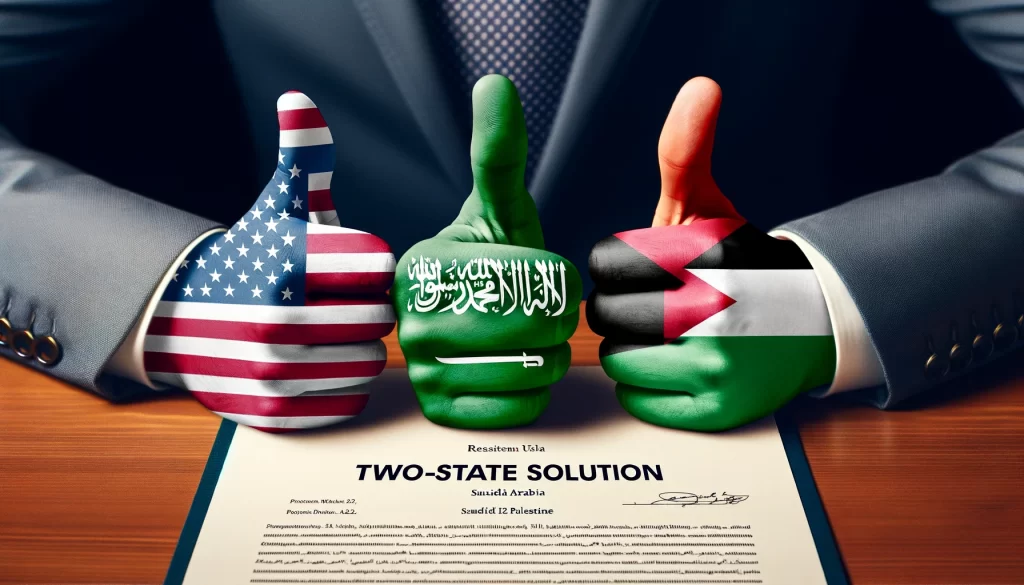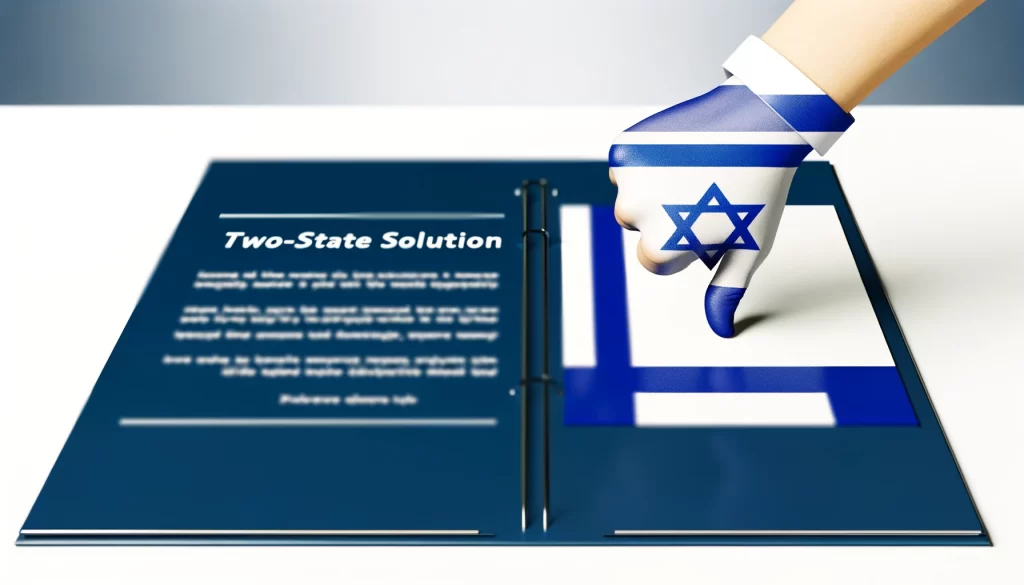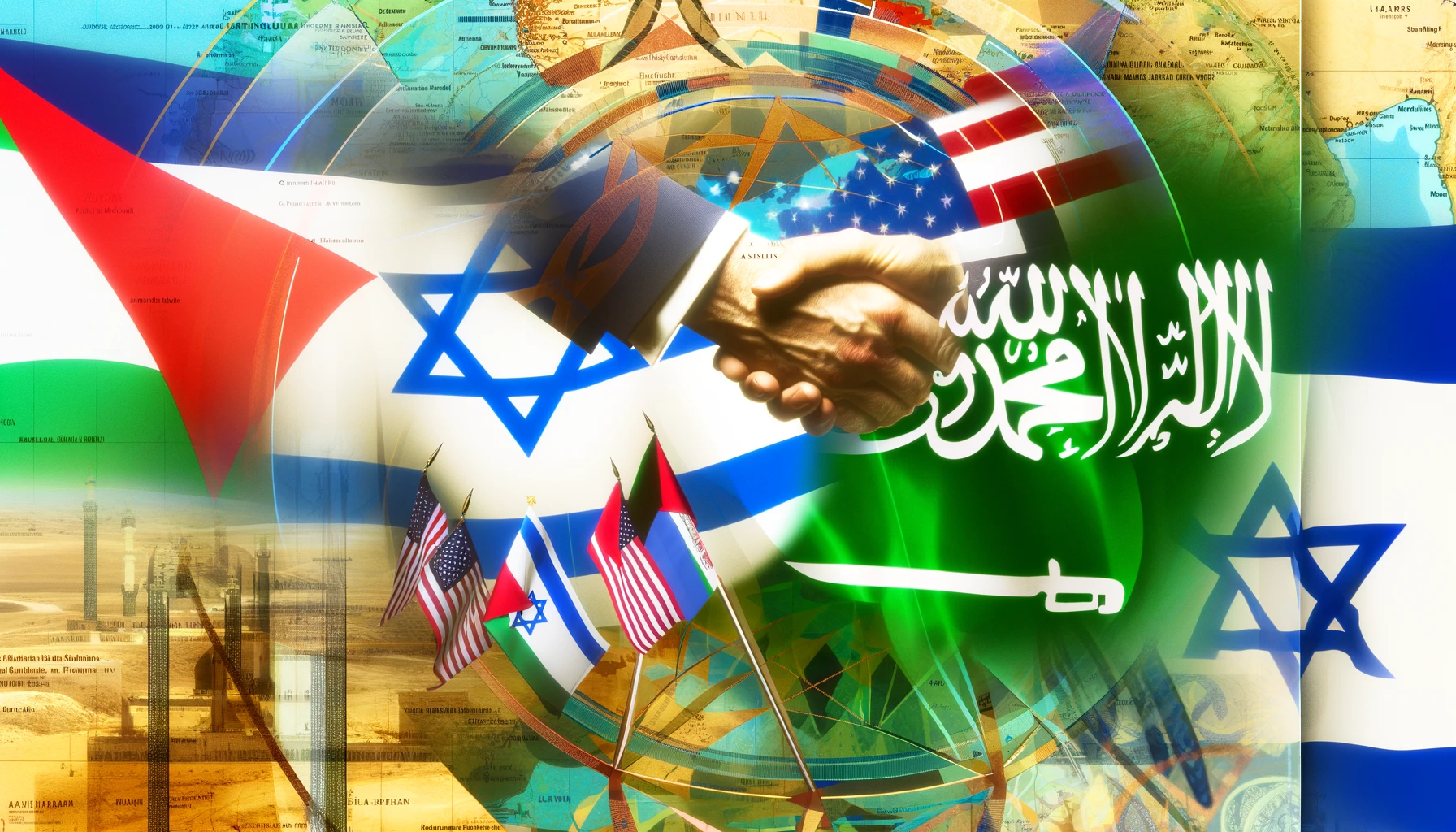The Future of Peace: A Two-State Solution?
In recent times, the relationship between the United States and Israel has hit a rough patch, mainly due to differing views on a very important issue: the creation of a Palestinian state. While the idea of countries disagreeing on policies isn’t new, the stakes here are incredibly high, not just for the countries directly involved but for the entire world.
Understanding the Disagreement
At its heart, this disagreement is about how to achieve lasting peace in a region that has seen too much conflict. The United States, under President Joe Biden’s leadership, believes that creating a Palestinian state is a crucial step toward peace. This idea isn’t just a whim; it’s seen as a strategic necessity for stability in the region. Saudi Arabia, a key player in the Middle East, agrees with the U.S. and sees the creation of a Palestinian state as essential for normalizing relations with Israel.
However, Israel, particularly under Prime Minister Benjamin Netanyahu, has a different view. The current Israeli government is opposed to the idea of a Palestinian state, a stance that hasn’t been this strong since the Oslo Accords were signed back in 1992. These accords were a pivotal moment in the peace process, aiming to lay the groundwork for future Israeli-Palestinian relations.

The Price of Peace and the Cost of Conflict
The potential peace plan, which is rumored to be unveiled soon, hinges on a commitment to establishing a Palestinian state. This isn’t just about drawing borders; it’s about ensuring security, stability, and mutual recognition between Israel and a future Palestinian state. The Biden administration is trying to show Israel that agreeing to this plan could lead to improved security through better relations with neighboring countries, including Saudi Arabia.
But what if Israel doesn’t agree? The situation is delicate. The U.S. has hinted that it might demand Israeli cooperation rather than just suggest it. This is a big deal because America’s influence in the region is significant. The U.S. has been trying to balance its support for Israel with the need to address Palestinian aspirations and the broader goal of regional stability.

The Role of Public Opinion and the Future
Israeli public opinion is largely supportive of their government’s stance against Palestinian statehood, making it a tough nut to crack for any peace proposal. However, the U.S. isn’t without options. The American government has made it clear that continuing to reject the idea of a Palestinian state could harm Israel’s relations with the U.S. This is a bold statement, considering the close relationship between the two countries.
The outcome of the U.S. election could play a crucial role. If Biden wins a second term, he might be more willing to use America’s influence to push for a resolution. This could mean direct talks to the Israeli public, bypassing the current government, to explain why a two-state solution is in everyone’s best interest.
This article is based on the following article:

Background Information
Understanding these key points can help the reader better comprehend the nuances of the Israeli-Palestinian conflict, the significance of a two-state solution, and the roles played by different actors in the region, including the United States, Israel, Palestine, and Saudi Arabia.
1. The Israeli-Palestinian Conflict
This conflict began in the early 20th century, rooted in the long-standing struggle between Jews and Arabs over the same territory in the Middle East. Following the end of World War II and the Holocaust, the United Nations proposed a plan to partition Palestine into a Jewish and an Arab state in 1947, which led to the establishment of Israel in 1948 and the first Arab-Israeli war. The conflict has been characterized by numerous wars, uprisings (Intifadas), and peace processes that have so far failed to resolve the dispute over land, sovereignty, and national identity.
2. The Concept of a Two-State Solution
The two-state solution refers to the idea of resolving the Israeli-Palestinian conflict by creating two independent states living side by side in peace: Israel as a Jewish state and Palestine as a state for the Palestinian people. This solution is based on the pre-1967 borders, with potential land swaps to account for changes on the ground. Despite being widely supported by the international community, progress towards realizing a two-state solution has been hindered by political, security, and territorial disagreements.
3. The Role of the United States
The United States has been a key player in Middle Eastern politics and the Israeli-Palestinian peace process for decades. U.S. involvement has included diplomatic efforts to broker peace agreements, military aid to Israel, and attempts to balance its strategic interests in the region. The U.S. stance on the conflict has varied with different administrations, influencing the dynamics of peace negotiations and regional politics.
4. The Importance of Saudi Arabia
Saudi Arabia is a major Arab state with significant influence in the Middle East due to its economic power, oil reserves, and position as the custodian of Islam’s two holiest sites. Saudi Arabia’s stance on the Israeli-Palestinian conflict is crucial because normalization of relations between Saudi Arabia and Israel could reshape regional alliances, impact the peace process, and affect the balance of power in the Middle East.
5. The Oslo Accords
Signed in the 1990s, the Oslo Accords were a landmark interim peace agreement between Israel and the Palestine Liberation Organization (PLO). They established the Palestinian Authority and set a framework for future negotiations to resolve the conflict. However, key issues such as borders, the status of Jerusalem, Palestinian refugees, and Israeli settlements were left to be decided in future negotiations, which have yet to produce a final peace agreement.
6. The Impact of Regional Conflicts
The Middle East is a complex region with various ongoing conflicts and power struggles, including the rivalry between Saudi Arabia and Iran, civil wars in Syria and Yemen, and tensions involving Lebanon and Hezbollah. These conflicts can influence the Israeli-Palestinian issue by shifting alliances, affecting regional stability, and impacting the strategic interests of global powers like the U.S.
Please subscribe to Insight Fortnight, our biweekly newsletter!
